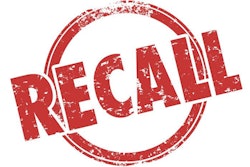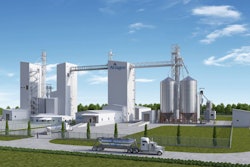
Company defends itself after Warren, Booker seek answers on worker coronavirus infections, exports to China during the pandemic
Tyson Foods has issued a response to a letter from U.S. Senators Elizabeth Warren (D-Massachusetts) and Cory Booker (D-New Jersey) that pressed several U.S. meat-packing companies for answers on worker coronavirus (COVID-19) infections and exports to China during the pandemic.
In a letter dated June 22 and sent to the CEOs of Tyson Foods, JBS USA, Cargill and Smithfield Foods, the senators said the companies exported more than 1.3 billion pounds of beef and pork from March 20 through early June, even though the companies warned of a potential meat shortage as a result of the pandemic.
“We prioritized the U.S. market and delivered products that are part of the American diet to our U.S. customers during the crisis,” wrote Dan Turton, senior vice president, global government affairs at Tyson Foods, on the company’s website on July 21. “As to our international exports, a large portion of meat exports from the United States are cuts of meat or portions of the animal (e.g. organ meats, chicken paws, etc.) that are not desired by our customers or consumers because they are not part of the traditional American diet and would otherwise be discarded or rendered. Because export markets do not generally desire the same commodity products as those sold in the U.S. market, exporting does not threaten the American meat supply.”
The company said that finding destinations for those “otherwise undervalued portions of the animal” provides greater value to U.S. farmers and ranchers.
Worker safety concerns
As meat and poultry processing plants have become hotspots for COVID-19 infections among workers, Warren and Booker claim the companies “created the conditions that left your workers and the supply chain vulnerable to the COVID-19 pandemic – but instead of addressing them, you used the prospect of food shortages to secure a federal license to put your workers in harm’s way.”
In its response, Tyson said that it “remains committed to doing our best to modify and fine tune our protective measures in an effort to keep our team members safe while also providing nutritious food to America’s families.”
Tyson said that it has consistently met or exceeded safety guidelines issued by the Centers for Disease Control and Prevention (CDC) throughout the pandemic.
“For our facilities, we issued initial guidance in late February 2020 to address virus spread prevention measures such as hand washing and sanitizing and implemented frequent cleaning and sanitization of high touch areas,” Tyson’s letter said. “We also provided educational and reference materials on COVID-19 in more than 15 languages for the facilities to share with team members or mailed directly to team members’ home addresses. That initial guidance was quickly followed by additional guidance in early March 2020 imposing strict visitor restrictions and symptom screening for any contractors.”
Tyson went on to list the numerous safety measures it says it has implemented throughout the pandemic.
Senators question food processors, farm operators
Since issuing its letters to the meatpackers, Booker and Warren, along with Sen. Jeff Merkley (D-Oregon), have also sent letters to the country’s largest food and beverage processors and farm operators requesting information on how they are protecting their workers and the food supply chain from potential outbreaks COVID-19 at their facilities.
The latest round of letters from the senators, dated July 1, were sent to executives at Archer Daniels Midland Co., Kraft Heinz, Mondelez International and Iowa Select Farms, among others.
View our continuing coverage of the novel coronavirus (COVID-19) pandemic.












